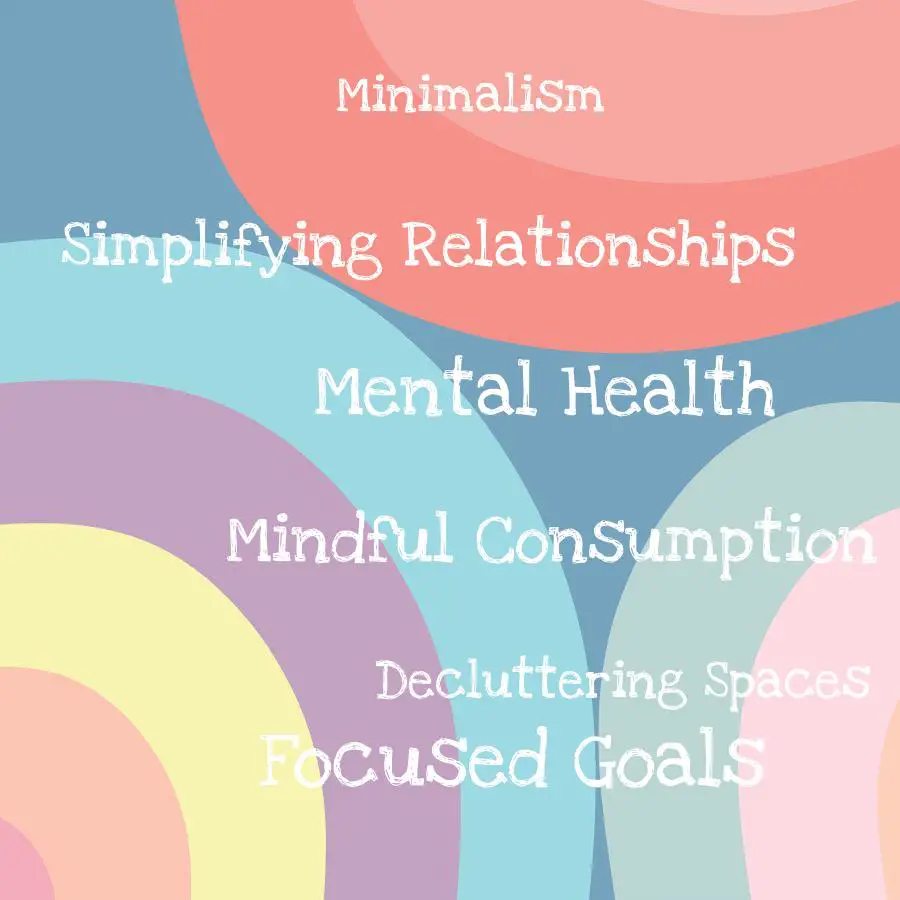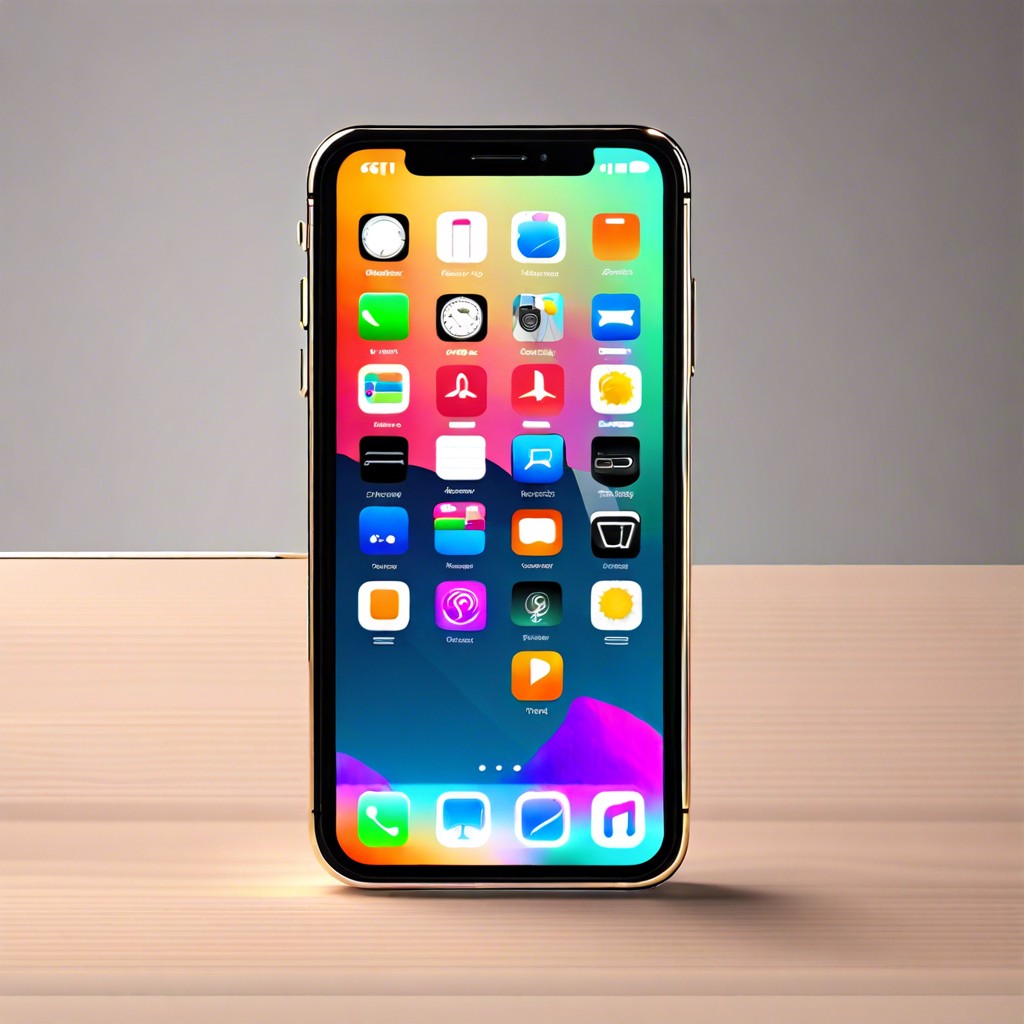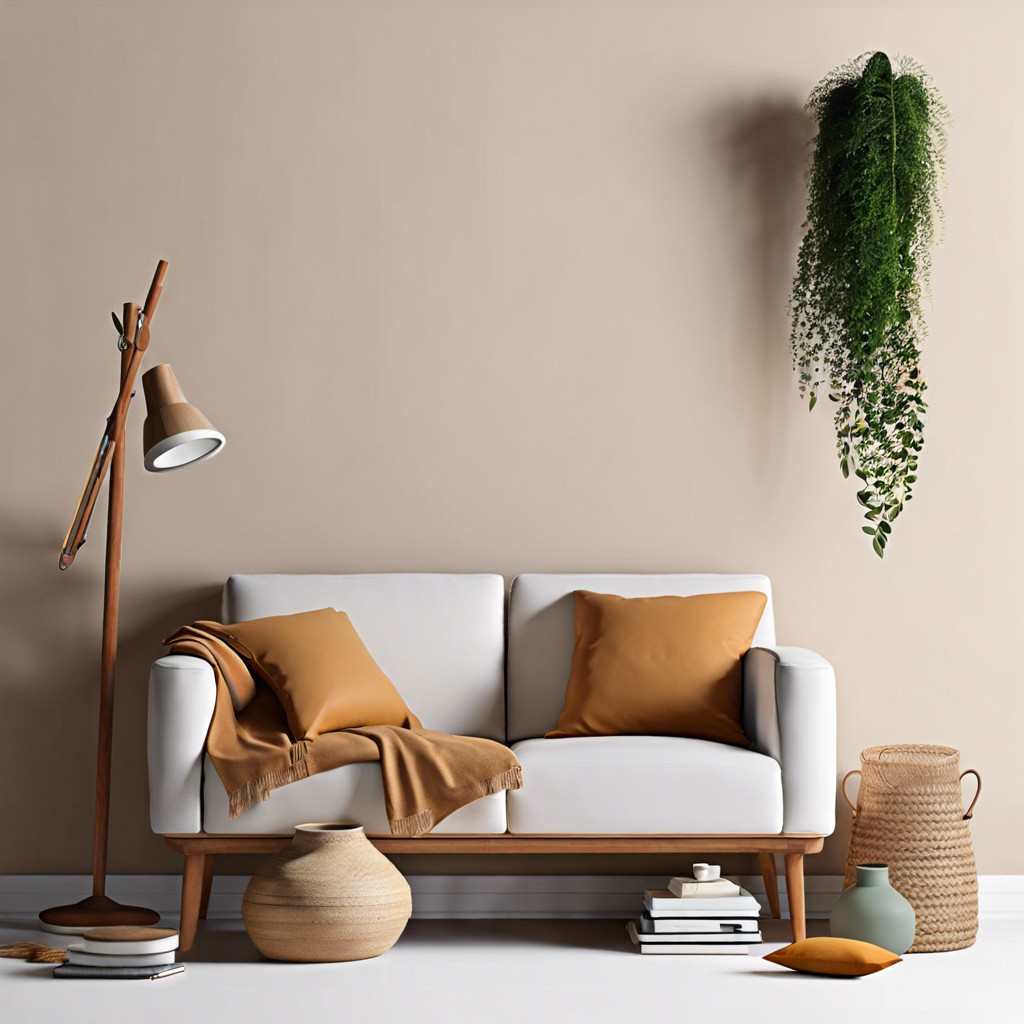Last updated on
In this article, we explore how embracing minimalism can improve your mental health and lead to a more fulfilling life.
As I sat in my cluttered apartment, surrounded by piles of clothes, books, and miscellaneous items, I couldn’t help but feel overwhelmed. My mind was constantly racing with to-do lists and worries about the future.
It wasn’t until a friend introduced me to the concept of minimalism that I realized how much my physical environment was affecting my mental health.
Minimalism isn’t just about getting rid of stuff; it’s a lifestyle that prioritizes simplicity and intentionality. By decluttering our physical space and simplifying our daily routines, we can free up mental space for more meaningful experiences and relationships.
In this article, we’ll explore how embracing minimalism can lead to a more fulfilling life. From reducing stress levels to increasing productivity, there are countless benefits to adopting a minimalist mindset.
So grab a cup of tea (or coffee) and let’s dive in!
Table of Contents
Defining Minimalism

At first, the idea of minimalism may seem daunting. It’s easy to associate it with stark white walls and empty spaces.
But in reality, minimalism is about finding a balance between what we need and what we want. For me, embracing minimalism meant taking a hard look at my possessions and asking myself some tough questions: Do I really need this? Does it bring me joy or serve a purpose in my life? By letting go of items that no longer served me, I was able to create more physical space in my home – but more importantly – mental space for things that truly mattered.
Minimalism isn’t just about decluttering our homes; it’s also about simplifying our daily routines. For example, instead of scrolling through social media first thing in the morning (which can often lead to feelings of comparison or anxiety), try starting your day with meditation or journaling.
By defining what minimalism means for us individually and incorporating its principles into our lives gradually over time, we can experience the benefits without feeling overwhelmed by drastic changes all at once.
Mental Health Benefits
As I began to declutter my apartment and simplify my life, I noticed a significant improvement in my mental health. The constant background noise of anxiety and stress started to fade away, replaced by a sense of calm and clarity.
It turns out that there are many mental health benefits to embracing minimalism.
Studies have shown that cluttered environments can increase cortisol levels (the stress hormone) in our bodies, leading to feelings of overwhelm and anxiety. By contrast, minimalist spaces promote relaxation and reduce the cognitive load on our brains.
In addition to reducing stress levels, minimalism can also improve focus and productivity. When we’re not constantly distracted by physical clutter or overwhelmed with too many choices or tasks at once, we’re able to concentrate more fully on the task at hand.
Adopting a minimalist mindset has been one of the most transformative changes I’ve made for my mental health. By simplifying both my physical space and daily routines, I’ve created more room for peace of mind – something that’s truly priceless in today’s fast-paced world.
Decluttering Spaces
As I began my journey towards minimalism, the first step was decluttering my physical space. It wasn’t easy at first; I had accumulated so many possessions over the years that it felt overwhelming to even begin sorting through them.
But as I started to let go of items that no longer served a purpose in my life, something amazing happened: I felt lighter and more free. Decluttering our spaces can have a profound impact on our mental health.
Studies have shown that living in cluttered environments can increase stress levels and decrease productivity. On the other hand, having an organized and simplified space can lead to feelings of calmness and clarity.
One strategy for decluttering is to start small – tackle one area or category at a time instead of trying to do everything all at once. Another helpful tip is to ask yourself if each item brings you joy or serves a practical purpose; if not, it may be time for it to go.
By embracing minimalism through decluttering our physical spaces, we open up room for new experiences and opportunities in life – leading us towards greater fulfillment overall.
Simplifying Relationships
As I began to declutter my physical space, I also started to evaluate the relationships in my life. Just like our possessions, we often hold onto people out of obligation or fear of being alone.
But just as clutter can weigh us down, toxic relationships can drain our energy and negatively impact our mental health. Simplifying your relationships doesn’t necessarily mean cutting people out of your life entirely; it’s about setting boundaries and prioritizing those who bring positivity and support into your world.
This could mean having an honest conversation with a friend about how their behavior is affecting you or simply spending more time with those who make you feel happy and fulfilled. By simplifying my social circle, I was able to cultivate deeper connections with the people who truly mattered in my life.
And by letting go of toxic friendships that were holding me back, I found myself feeling lighter and more free than ever before. Incorporating minimalism into all aspects of your life may seem daunting at first but taking small steps towards simplification will lead to a happier mind-set overall!
Mindful Consumption
One of the key principles of minimalism is mindful consumption. It’s about being intentional with what we bring into our lives and making sure that everything we own serves a purpose or brings us joy.
As I started to declutter my apartment, I realized just how much money and energy I had been wasting on things that didn’t truly matter to me. I began to ask myself questions before making purchases: Do I really need this? Will it add value to my life? Is there something else that could serve the same purpose? By adopting a more mindful approach, not only was I able to save money and reduce clutter, but also cultivate gratitude for what I already had in my life.
Instead of constantly seeking out new possessions or experiences, minimalism taught me how to appreciate the present moment and find contentment in simplicity. Incorporating mindfulness into our consumption habits can have a profound impact on our mental health by reducing stress levels associated with financial strain while increasing feelings of gratitude for what we already possess.
Focused Goals
As I began to declutter my home and simplify my life, I realized that the benefits of minimalism extended far beyond just having a tidy space. One of the most significant changes was in how I approached goal-setting.
Before, my goals were often vague and overwhelming. For example, “get in shape” or “save money.” But with a minimalist mindset, I learned to focus on one specific goal at a time and break it down into actionable steps.
For instance, instead of trying to save an arbitrary amount each month without any plan or purpose behind it, I set a clear financial goal: saving up for an emergency fund that would cover six months’ worth of expenses. This gave me direction and motivation as well as peace of mind knowing that if anything unexpected happened (like losing my job), I had some cushioning.
By focusing on one specific goal at a time rather than trying to do everything all at once (and inevitably feeling overwhelmed), we can make real progress towards our aspirations while also reducing stress levels along the way.
Stress Reduction
As I began to declutter my apartment, I noticed an immediate reduction in stress levels. The piles of clothes that once caused me anxiety were now neatly folded and organized in my closet.
The stacks of books that cluttered my coffee table were donated to the local library, creating a sense of spaciousness in my living room. Studies have shown that physical clutter can lead to mental clutter and increased cortisol levels (the hormone associated with stress).
By simplifying our surroundings, we can create a more peaceful environment for ourselves. But minimalism isn’t just about getting rid of stuff; it’s also about being intentional with what we choose to keep.
By surrounding ourselves only with items that bring us joy or serve a purpose, we can cultivate gratitude and contentment in our daily lives. In addition to reducing stress levels through decluttering, minimalism encourages us to slow down and prioritize self-care activities such as meditation or yoga.
These practices help us connect with the present moment and reduce feelings of overwhelm or anxiety. Embracing minimalism has been transformative for both my physical space and mental health.
It’s amazing how much impact simplifying our surroundings can have on our overall well-being!




